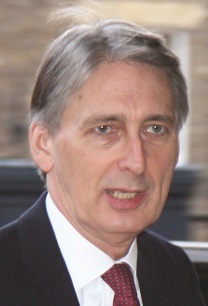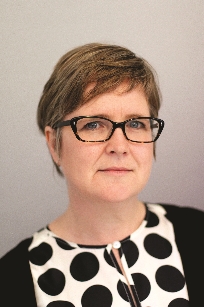News / News review - April 2017
The set piece event of March took place early, with chancellor Philip Hammond delivering his first full Budget. As expected, he found more funding for local authorities – they will receive an additional grant of £2bn over three years for social care, with £1bn available in 2017/18. Contrary to expectations, he also allocated more money to health, with £325m of capital funding available to the most advanced sustainability and transformation plans (STPs). This will be allocated ahead of the autumn Budget, which he said would include a multi-year capital scheme for STPs. He also announced a further £100m of capital to help hospitals extend the use of GP triage in A&E.
Though not as much as STPs believe they will need, the health service welcomed the capital funding and the possibility of more to come. However, it soon became the subject of some controversy as Budget documents showed that all of the £325m would not be available immediately, as initially thought, but over three years, with £130m available in 2017/18.
In the run-up to Mr Hammond’s statement, NHS stakeholders pushed hard for additional funding. NHS Providers said that over the winter months, bed occupancy in England spiked at 96% and remained above the recommended safe level of 85%. The British Medical Association called for the UK’s health spending to increase by £10bn to bring health spending in line with other leading European countries. It said spending in the 10 leading European economies averaged 10.4% of GDP, but the UK’s was 9.8% – a gap of £10.3bn.
The NHS Confederation said the government should admit the NHS does not have enough funding to offer all services. While the service had coped better than many had predicted, it was time for the government to acknowledge the limitations patients can expect and that services must be able to prioritise what they can and cannot provide. A joint letter from NHS Providers, the Royal College of Physicians and the Royal College of Emergency Medicine urged the chancellor to ensure any additional cash for social care will be spent in a way that benefits NHS patients. Though extra money was forthcoming, NHS Providers later said there were no guarantees it would alleviate the pressure on the health service.
The 44 sustainability and transformation plans in England will struggle to reduce hospital activity unless they are given more money and staff to develop new services, the Nuffield Trust said. In a report – Shifting the balance of care: great expectations – the trust said schemes to move care out of hospital were often better for patients but largely fail to save money. The trust looked at 27 of the most common schemes to move care closer to home and found many had the potential to improve patient outcomes and experience. However, only seven had saved money, many produced no overall saving and six would likely increase the cost to the NHS. The seven money-saving schemes included: additional support to people in nursing homes; better support at end of life; and giving GPs access to specialists such as dermatologists.
After warning in February that it was considering placing 12 trusts into financial special measures, NHS Improvement announced in March that three would move onto the regime. The oversight body said the trusts – St George’s University Hospital NHS Foundation Trust, North Lincolnshire and Goole NHS Foundation Trust and University Hospitals of North Midlands NHS Trust – had not kept up with their agreed control totals and were forecasting a combined year-end deficit of £145m. The trusts will receive support to ensure their financial systems work effectively, improve their efficiency and productivity and ensure they are paid appropriately for the work they do.
NHS Improvement said its controls on agency spending have saved £1bn since they were introduced in October 2015. It said this was due to an outstanding effort by trusts, 77% of which had been able to cut their agency spending since last year. More than half of these trusts (95 trusts or 40% of all trusts) had reduced spending by more than 25%. But it said more could be done to curb medical locum spending, which is expected to be £1.1bn this year. NHS Improvement said £300m could be saved if all medical locum rates were within the price cap.
In further NHS Improvement news, chair Ed Smith said he would step down in the summer. Announcing his retirement, he said he wanted to give his successor time to recruit a new chief executive for the oversight body. Current chief executive Jim Mackey joined NHS Improvement in November 2015 on a two-year secondment.
NHS England will support bed closures that arise from proposed major service reconfigurations, but only if they satisfy one of three tests. Simon Stevens, NHS England chief executive, said that, from 1 April, it would only allow significant bed closures to go ahead if they demonstrate sufficient alternative provision; or show new treatments or therapies will reduce admissions; or, where it has been using beds less efficiently, a hospital can show it has a credible plan to improve performance without affecting patient care. Major closures would still be subject to public consultation.
Also from 1 April, NHS-funded nursing care rates have been reduced. The Department of Health said that following a review, the standard rate will be £155.05 per week and the higher rate £213.32. Currently, the standard rate is £156.25 and the new rate is the result of a reduction in the agency cost component, partially offset by a 1.7% uplift to reflect nursing wage pressures. Prescription charges in England increased by 20p to £8.60 for each medicine or appliance dispensed. Pre-payment certificate prices have been frozen at £104 for an annual certificate or £29.10 for three months. Prescriptions are free in the rest of the UK.
GP pay and expenses will increase by 2.7% in 2017/18 under the new contract agreed in Wales. Announcing the deal, Wales health secretary Vaughan Gething said the uplift included a 1% pay rise, an increase of 1.4% to cover practice costs and other elements, such as a contribution towards increasing indemnity costs. There are also a number of new enhanced services.
The NHS Litigation Authority launched a five-year strategy underlining a strategic shift to becoming involved in incidents at an earlier stage. It has also changed its name to NHS Resolution to reflect the extension of its role beyond claims management. The new organisation brings together the NHS Litigation Authority, the National Clinical Assessment Service and the Family Health Services Appeal Unit, though the statutory remit is unchanged. It said it aims to improve the experience of patients, families and staff, focusing on prevention, learning and early intervention to avoid unnecessary court action.
The British Medical Association and Royal College of Nursing called on the home secretary to exempt the health and social care system from the immigration skills charge. The bodies said the charge, due to be introduced on 6 April, will impose an upfront charge of £1,000 per year for employers who bring staff into the UK on a Tier 2 (general) work visa. In the year to August 2015 this would have cost the NHS £3.5m, they said.
Quotes
‘Out-of-hospital care is often better for patients and the right aspiration for the NHS given the growing and ageing population. But it is not likely to be cheaper for the NHS in the short to medium term – and certainly not within the tight timescales under which the STPs are expected to deliver change.’
Nuffield Trust policy director Candace Imison on moving care out of hospital
‘Increased support to the NHS in delivering candour in practice and in sharing learning for improvement will be coupled with a fresh approach to resolution, which reduces the need for costly and stressful court proceedings.’
NHS Resolution chief executive Helen Vernon outlines its new five-year strategy

‘At autumn Budget, I will announce a multi-year capital programme to support the implementation of approved high-quality STPs. In the meantime, the health secretary expects a small number of the strongest STPs may be ready, so I am allocating an additional £325m of capital to allow the first selected plans to proceed.’
Chancellor Philip Hammond (right) unveils extra capital funding – but this will be spread over three years

‘The chancellor’s initiatives will provide support in the short term. But they do not by themselves provide sustainable solutions for the NHS and care services over the medium to long term. The gap between what the NHS is being asked to deliver and the resources available will continue to grow.’
Saffron Cordery (right), NHS Providers’ policy and strategy director, reacts to the Budget measures.
In the media
During last month, the HFMA gained further coverage of its new qualifications and its commitment to training and development.
HFMA policy and technical director Paul Briddock discussed the benefits for all staff of training and development in NHS finance in a comment for National Health Executive. While development was important for finance staff at all levels, he wrote, increasing the skills of general managers, clinicians, practice managers, other healthcare professionals and non-executive directors will go a long way to ease the sometimes conflicting pressures.
Writing a blog for the Future-Focused Finance website, HFMA education director Alison Myles said the new qualifications, which can lead to an MBA, help give finance professionals the skills to deliver plans focused on sustainability and transformation. The modules had been carefully designed with the current challenges in mind, she added.
The association’s work on transforming the profession’s role was also highlighted in an article in the British Journal of Healthcare Management on the progress of FFF (see also Healthcare Finance, December 2016). The BJHM article highlighted how 2013 president Tony Whitfield had adopted ‘Knowing the business’ as his theme, which focused on closer ties between clinicians and finance staff. This has been echoed in the FFF Close partnering workstream.
Related content
We are excited to bring you a fun packed Eastern Branch Conference in 2025 over three days.
This event is for those that will benefit from an overview of costing in the NHS or those new to costing and will cover why we cost and the processes.